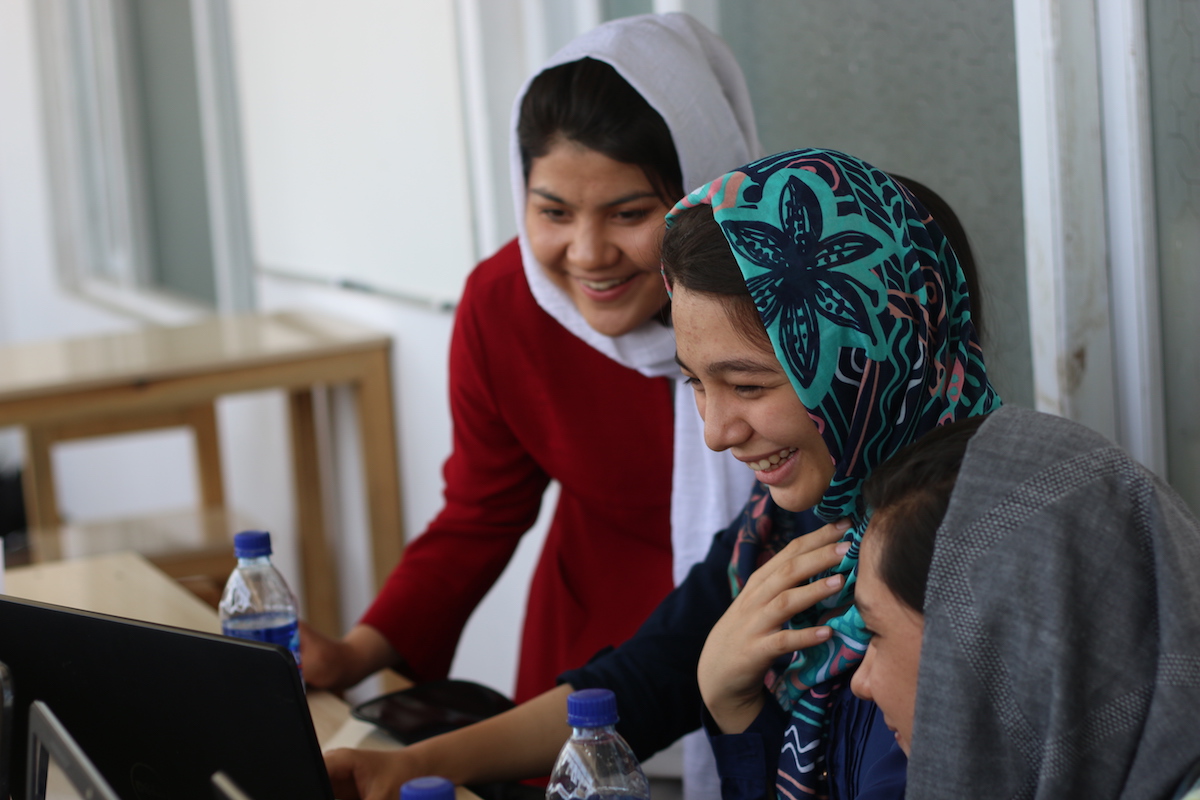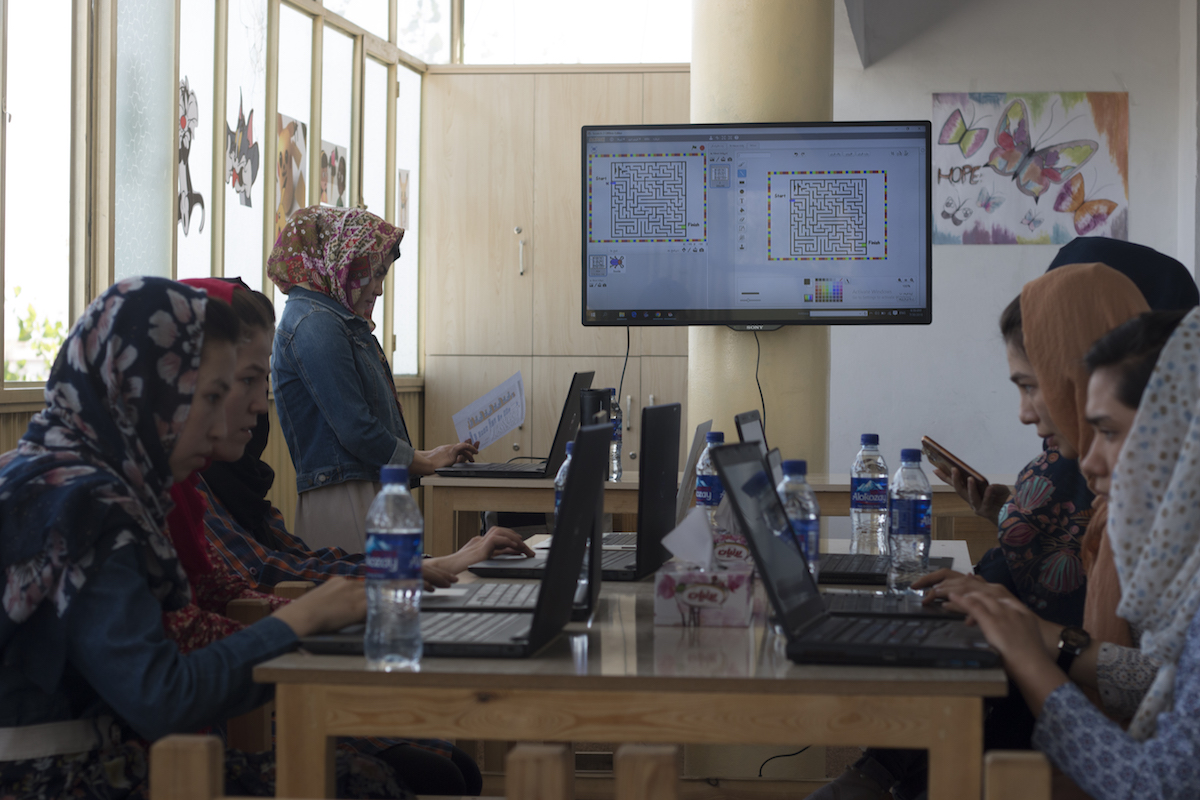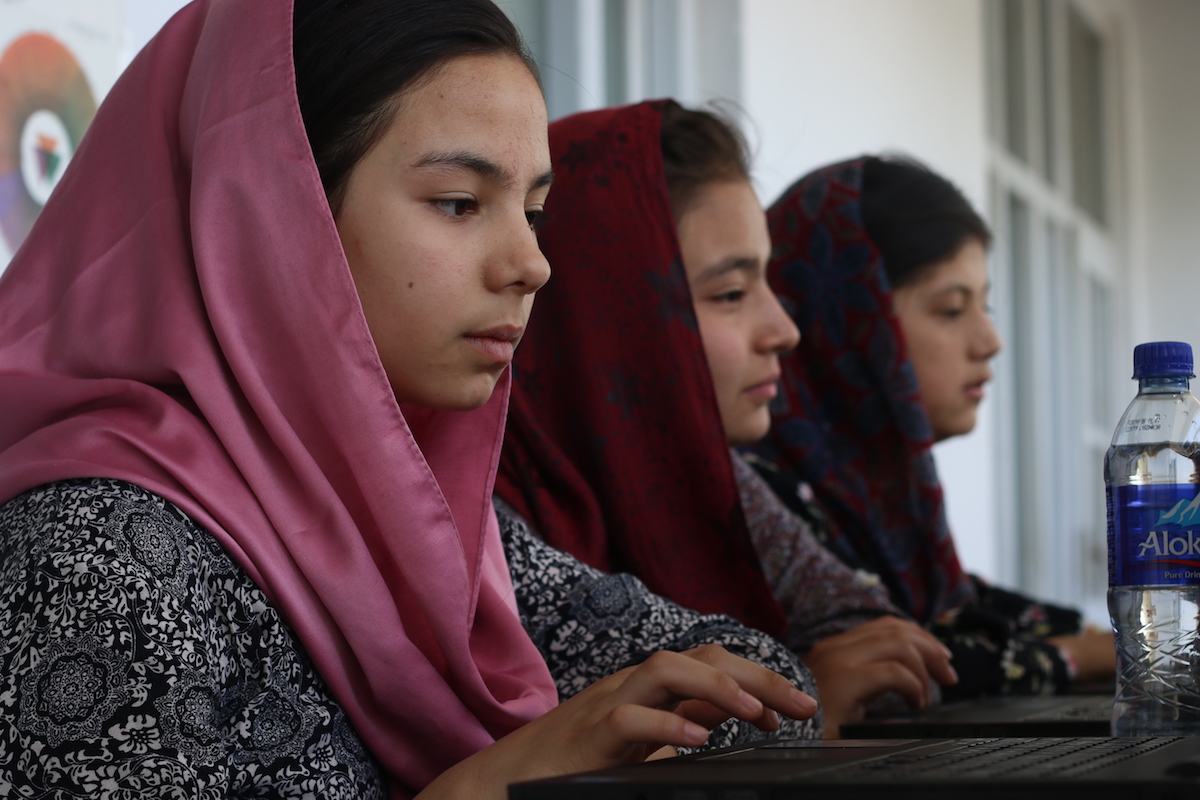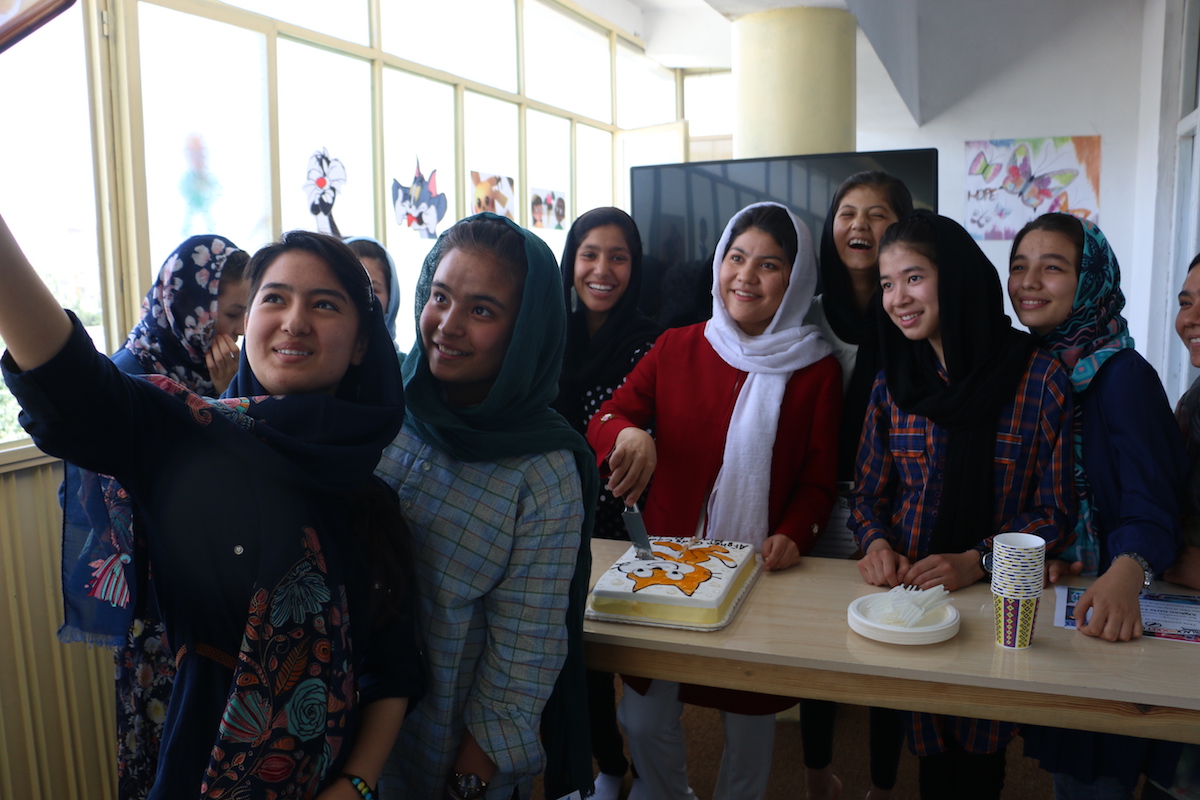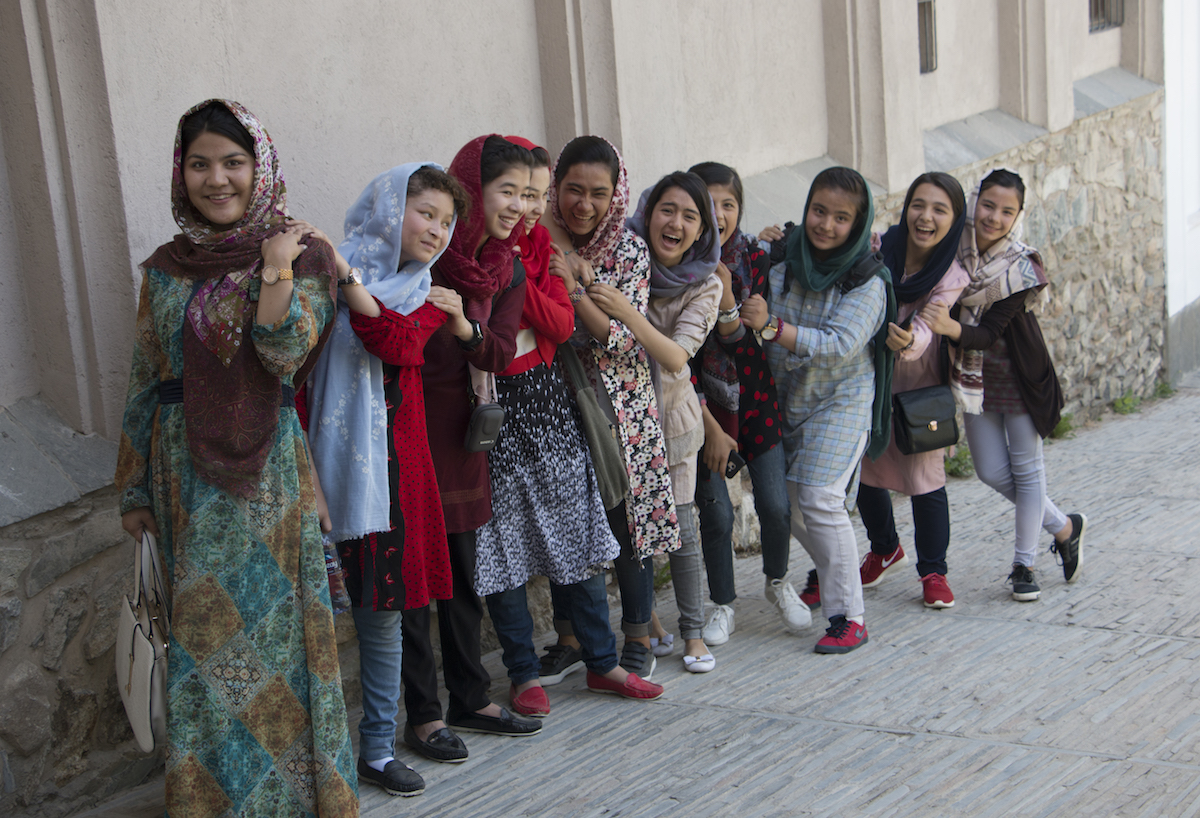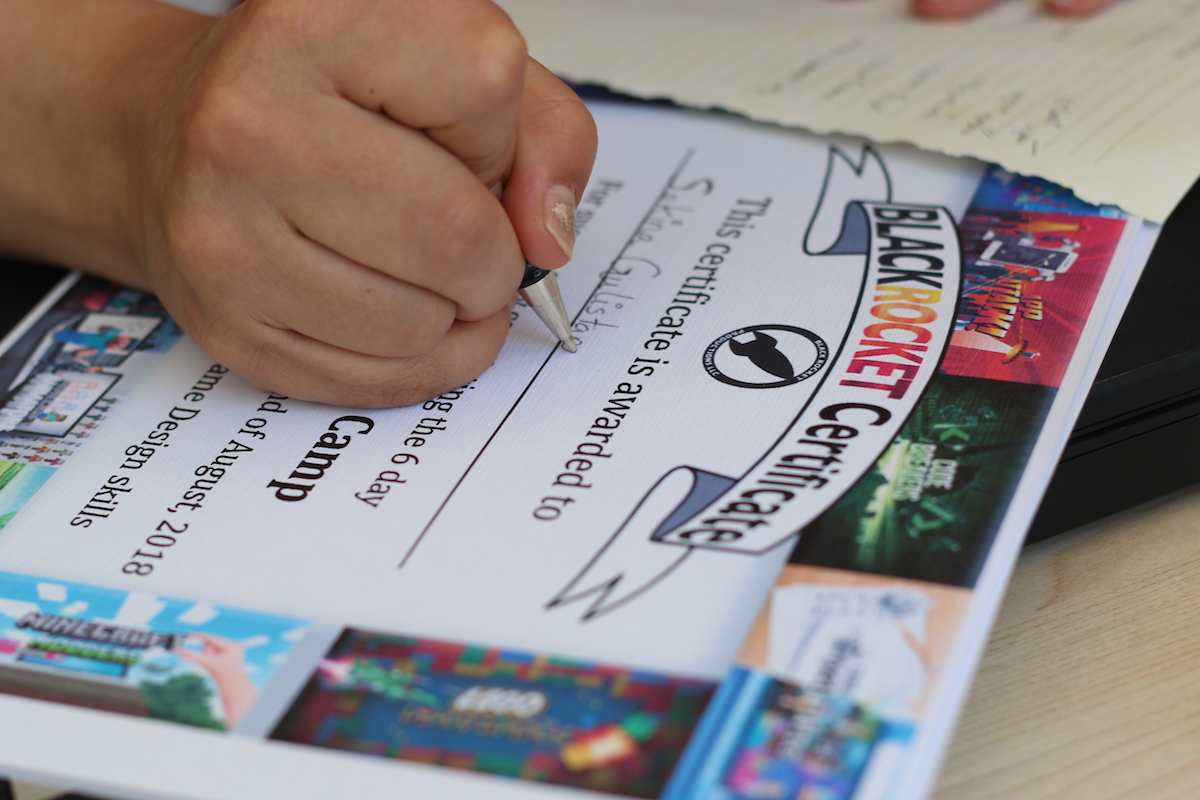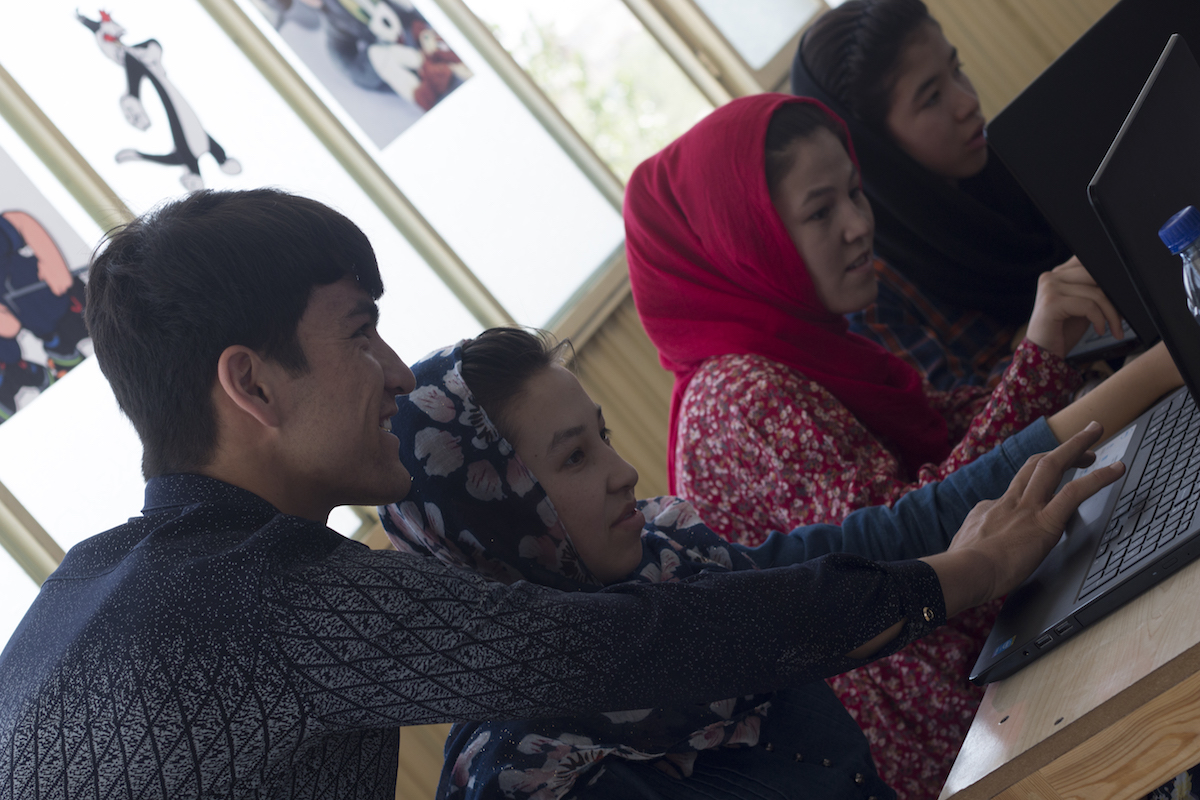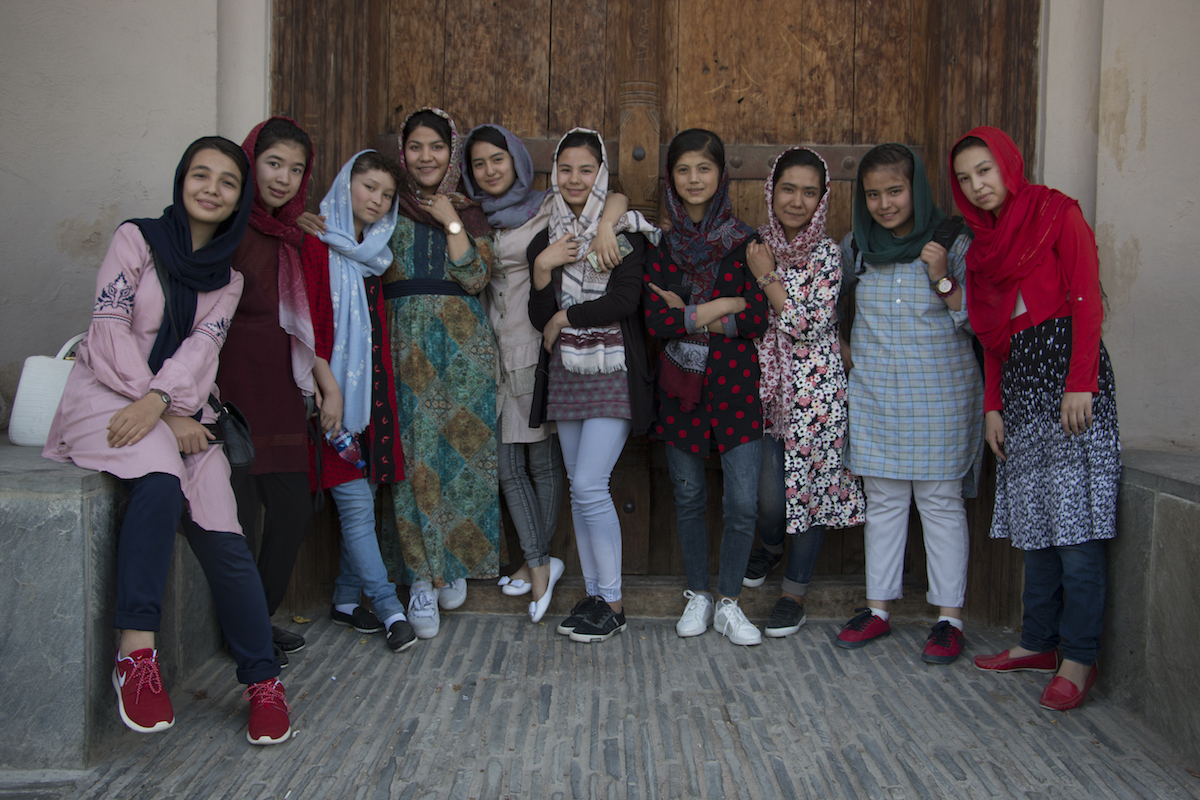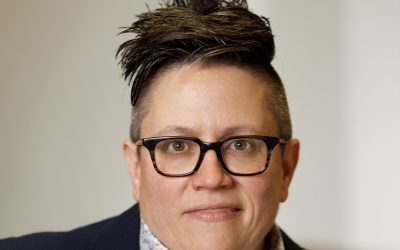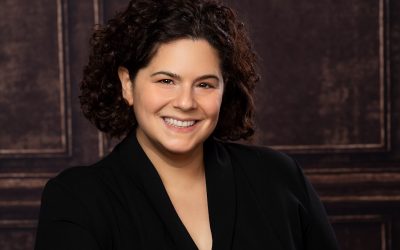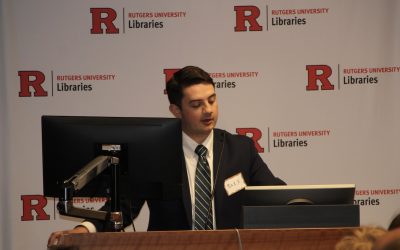‘One day the class had to go home early after we heard four explosions nearby. … Through it all, at the same time, the students were so positive.’
September 2018 – Drew University computer science student Bahara Mohammadi C’20 created a program to help women in Afghanistan learn how to code. Here’s her story.
“I wanted to build a program to help expand the amount of girls in computer science in Afghanistan. Women are always suppressed and don’t have basic rights and it was important for me to empower them through computer science. Whatever your love and passion is, you can pass it onto others.”
“I started out paying out of my pocket to create the program, with help from my mom. Then, I reached out to the Drew Center on Religion, Culture and Conflict and Afghan Girls Financial Assistance Fund for support. Joseph Highland and Bill Godfrey from AFGAF helped me both financially and through mentorship. From Drew, (CRCC Director and Assistant Professor) Jonathan Golden encouraged me with the project. He always supports me no matter what. He helped me find some funding from Drew.”
“I always wanted to do a project in Kabul. A lot of my friends from home came to the U.S. and went back home and built libraries and other things. I didn’t want to just copy them. I wanted to do something new and bring new ideas to Afghanistan. Computer science is something that teenagers are interested in and so I came up with the idea. I named the project Afghan Girls Code and AGFAF said it was possible. They assigned me a mentor who helped me start planning in February.”
“I spent a solid two and a half months of the summer on the project. First, I built the curriculum and sent out applications and interviewed the candidates. They had to have at least some basic English—because so much coding is in English—and they had to want to pursue computer science.”
“Building the curriculum was the hardest part for me. I was interested in video games and that was the software that was available from Black Rocket and MIT’s Scratch. I had taken computer science courses but none were about building games or animation. So, I had to teach myself and then teach the students.”
“Classes were held in a computer lab at the new Baale Parwaz Library in Kabul about 40 minutes from my home. I split the 20 students in the program into two 10-student classes. That way everybody had their own computer.”
“I was very impressed by the students. They were so smart and they all want to study at the top universities in the world. I was so impressed with their expectations and goals for themselves. They don’t just say it—they are working hard to achieve these goals. If they continue on this path, I think they can do it.”
“I learned how to keep improving myself even with few resources. They have really, really limited resources and they’re getting the most out of it. The internet is so bad that it took me an entire week just to download the software onto 10 computers. One day the class had to go home early after we heard four explosions nearby. We learned later that they were only 20 minutes away from the school. People had died. Through it all, at the same time, the students were so positive.”
“The classes met for one hour and fifteen minutes a day for 10 straight days. Each day we worked on a program like games or animated stories. I would teach for about a third of the class, they’d implement what I taught and I would go around and help. Everyone created a maze, a 2-D game (above), a catch game and animations. Sometimes someone would make a mistake and we would end up discovering something new.”
“One day I took them sightseeing at a famous national garden, the Gardens of Babur. Being able to see things like this … it’s not like here in America. Back home it works differently. I was so worried about security that I didn’t sleep the night before. But I wanted them to get out and have some fun and have this experience.”
“At the end of the summer program I awarded them a certificate of completion. My hope, first of all, is they learned a skill a lot of people don’t have. They’re learning a unique skill. Second, I want them to keep this with them and study at some of the top universities in the world and keep up with computer science.”
“I hired a software engineering college student to run the program with new and returning students while I’m at Drew for my junior year. I’m going to send him curricula so the students can continue learning and expanding their knowledge. My goal is for them to participate in international coding competitions in six to nine months. The material is something they have to keep building on.”
“I gained a lot of confidence that I can do big things now. I think what I got out of Afghan Girls Code was a lot of good memories and a lot of hard work that I put into it. I realized that to build something, it takes time and effort, but at the end it pays off. I learned to facilitate, create opportunities and help people to build something. It was learning how to create something by myself.”


